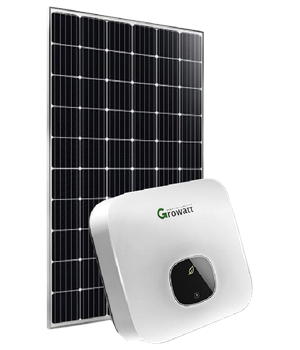25 Years
Performance
Guarantee
15 Years
Product
Warranty
10 Years
Inverter
Warranty

Types of Solar Panel by SmartUser
Our commitment to quality and service is unparalleled in the industry.
Cleaner, Greener Solar System for Everyone
✔ $0 Upfront Payment
✔ Limited Government Solar Rebate
✔ Limited Time for Factory Direct Price
✔ Recover Your System Cost in 3-4 Years
Solar System Service Process

The Cost Benefit Ratio

We Tailor A Solar System For Your Home

Solution & Design

Final Design

Installation

Maintenance & Support

Household Solar Panel System FAQ
How Does Household Solar Panel System Work ?
Solar panels are made out of photovoltaic cells that convert the sun’s energy into electricity.
Photovoltaic cells are sandwiched between layers of semi-conducting materials such as silicone. Each layer has different electronic properties that energise when hit by photons from sunlight, creating an electric field. This is known as the photoelectric effect – and it’s this that creates the current needed to produce electricity.
Solar panels generate a direct current of electricity. This is then passed through an inverter to convert it into an alternating current, which can then be used by the home or business the solar panels are attached to. Our home appliances such as the fridge and dishwasher use this power instead of drawing power from the electricity grid.
How Long Does It Take To Install?
You can be up and running in no time: residential solar panel installation will generally take no more than two days when installed by a Clean Energy Council accredited installer.
Solar panels are normally covered for 20-25 years once they are installed and even once their warranty has run out, they are expected to last for another 25 years because they need such little maintenance and upkeep.
Advantage of Solar Panels
Cheaper electricity bills
Cheaper electricity bills
With an increase in electric gadgets comes an increase in utility bills. You can reduce your electricity bills by installing solar panels on your house.
Earn money back
Earn money back
Once you have your residential solar panel system installed, you can make money by selling surplus electricity back to the grid. This is called a feed-in tariff.
Reduce your carbon footprint
Reduce your carbon footprint
Switching to solar energy setup significantly reduces your carbon footprint as it is a green, renewable source of energy.
Year-round efficiency
Year-round efficiency
Solar panels work efficiently all year round. While they work optimally in summer, they also produce a considerable amount of electricity during cloudy days & winter.
Low maintenance
Low maintenance
Solar panels have an average lifespan of 25-30 years, and require only little maintenance over these years.
Independent from the grid
Independent from the grid
Solar PV panel installation is an affordable, effective solution for remote homes in rural areas of the country.
Solar Panel: Renewable Power Incentives in Victoria
What is it all about and how much can I save?
The Victorian Solar Homes scheme was launched in 2018 and the Victorian government solar rebate scheme aims to make it easier for Victorians to access and install solar power systems at home.
Solar Victoria is providing a rebate of up to $1,400 for solar panel (PV) system installation, for homeowners and rental properties plus the option of an interest-free loan. To further reduce installation costs, householders can apply for an interest-free loan, for an amount equivalent to their rebate amount. The loan is required to be repaid over four years or can be repaid sooner in one lump sum. Smart user is also offering Interest-free loans for the remaining system costs with no up-front cost involved and delivering savings of $1,073 on average annual household electricity bills from solar PV panels (compared to the $890 estimated at program launch) .
Household Eligibility Criteria
The owner-occupier of the property where the system is being installed.
They have not already received a rebate as an owner-occupier under the Solar Homes Program.
The owners have a combined household taxable income of less than $180,000 per year (based on last year’s Australian Tax Office Notice of Assessment).
It is an existing property, valued at under $3 million.
The property address has not previously taken part in the Solar Homes Program » they do not have an existing solar PV system.


